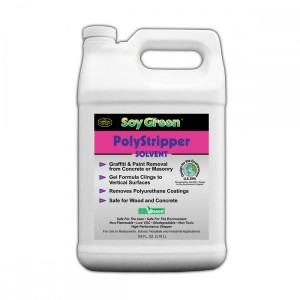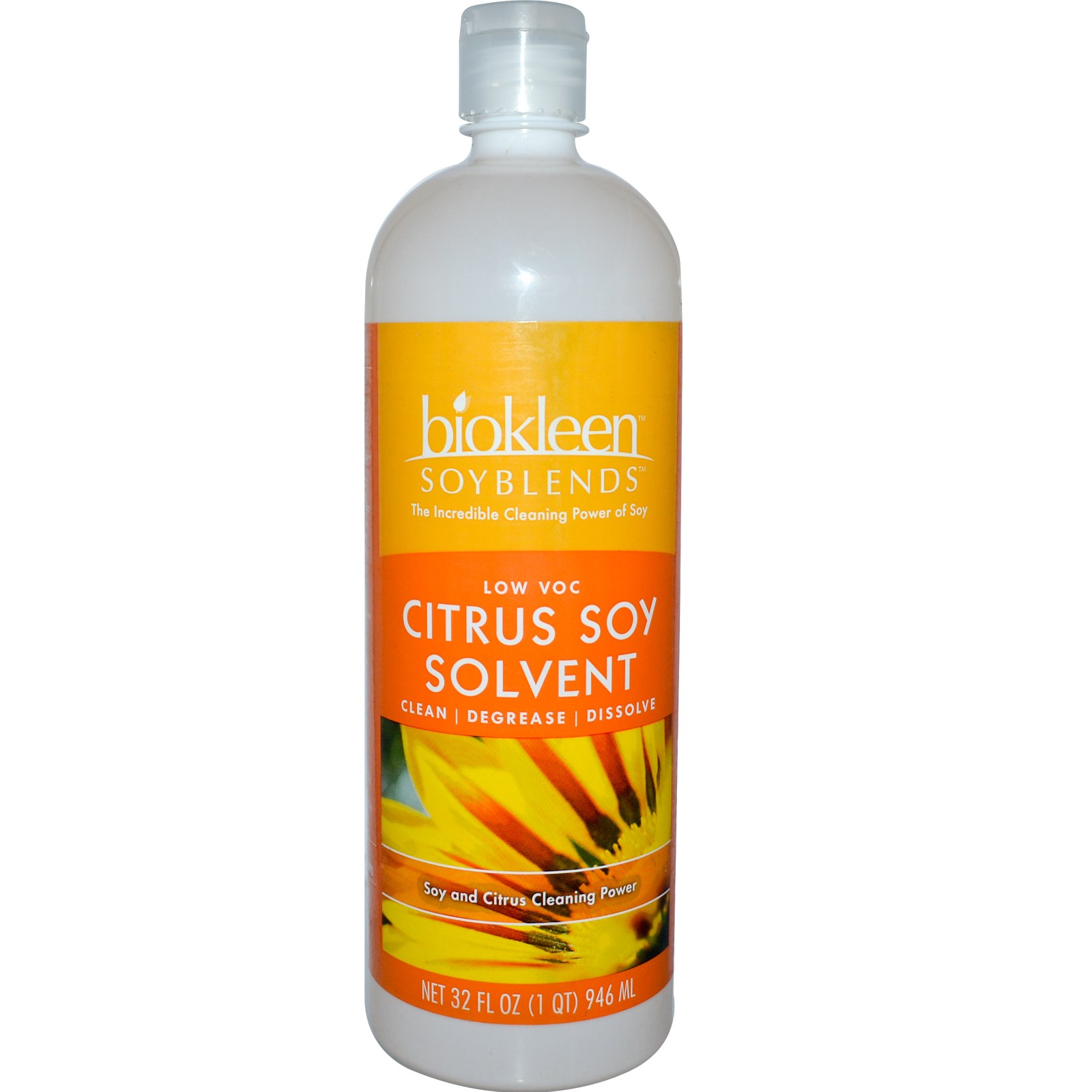Soy-Based Solvents Hold Their Own Against Chemical Counterparts
Many solvent manufacturers are replacing common petrochemicals in their products with biobased alternatives utilizing soy methyl esters, or methyl soyate. Methyl-soyate-based products provide manufacturers and consumers with several advantages over terpene, petrochemical based products or cleaners containing butyls in terms of VOC levels, toxicity, biodegradability, waste disposal and flammability. The United Soybean Board (USB) and soybean checkoff have played a significant role in funding research and development of methyl soyate for commercial solvents and have worked with companies such as Soy Technologies to fund soy-based solvents that provide safer alternatives to petroleum-based products.
Transesterification of soybean oil and methanol yields methyl soyate. The soy oil is heated and reacts with methanol in the presence of a catalyst. The reaction causes the separation of soy oil into methyl soyate and a co-product of glycerin. The methyl soyate goes through a water-wash process, where the water adheres to any impurities in the methyl soyate and filters them out. Next, the methyl soyate is dried and is then suitable for use in various products and applications.
Florida-based Soy Technologies is one company utilizing methyl soyate in the production of environmentally friendly cleaners and solvents, and 2005 marks the company?s second year of marketing and distributing VOC-compliant, patented technology to the industry. Three of the company’s current 2005 VOC-Compliant products include SoyFast All-Purpose Cleaner Concentrate and Manufacturer’s Base and two biosolvents, SoyGreen 5000 and SoyGreen 6000. In testing, these products have demonstrated effectiveness equal to or exceeding their petrochemical counterparts.
SoyFast All-Purpose Cleaner Concentrate is a ready-to-use cleaner/degreaser that can be diluted up to 1:30. It is also available as Manufacturer?s Base, which must be diluted to at least 1:30 and up to 1:150 depending on the level of cleaning or degreasing required. SoyFast is safe for use on aluminum, wood, painted surfaces, plastics, automotive finishes and other situations requiring cleaning and/or degreasing. SoyFast is safe to handle, store and transport as compared to many petrochemical cleaners and cleaners containing butyls. SoyFast is also water soluble, PH neutral, has a flash point of >300°F and a specific gravity of 1.0 gm/ml. VOC percentages vary; the All-Purpose Cleaner Concentrate is <0.5% and the Manufacturer?s Base has a VOC percentage of 5.87 undiluted and <.5 at minimal dilution.
SoyGreen 5000 is a biosolvent designed to be used undiluted for all stripping and removal operations, including paint stripping, adhesive removal, heavy-duty degreasing and carbon removal, printing ink removal and press cleanup. The product can be sprayed or brushed on and has dwell times ranging from 10 minutes to 24 hours if necessary. Longer dwell times are achievable due to SoyGreen 5000?s slow evaporation rate, a trait it shares with many of Soy Technologies? products. SoyGreen 5000 cannot be used for removal of polyurethane.
Technical data for SoyGreen 5000 includes a flash point of >200°F, .99 gm/ml specific gravity, PH neutrality and a VOC percentage of 4.41. Increased safety, environmental friendliness and economic parity make SoyGreen 5000 a strong alternative to petrochemical solvents.
SoyGreen 6000 shares almost all the same characteristics as SoyGreen 5000, including being cost-effective and an alternative to terpene or petrochemical-based products. The one characteristic it doesn?t share is that it?s a highly viscous liquid, which makes it ideal for use on vertical surfaces requiring the removal of paint, adhesives, coating removals and heavy-duty degreasing and carbon removal. SoyGreen 6000 is also not suitable for polyurethane removal. SoyGreen 6000 also has a flash point of >200°F, .99 gm/ml specific gravity, it is PH neutral and has a VOC percentage of 4.41.
The production and use of methyl soyate and biobased products continue to expand as increased government regulations and the market demand safer, greater performing alternatives to terpene or petrochemical based cleaners. Companies are taking a serious look at incorporating methyl soyate into their manufacturing processes. In many cases, companies are completely replacing petroleum contents in solvents with crop-based alternatives.




